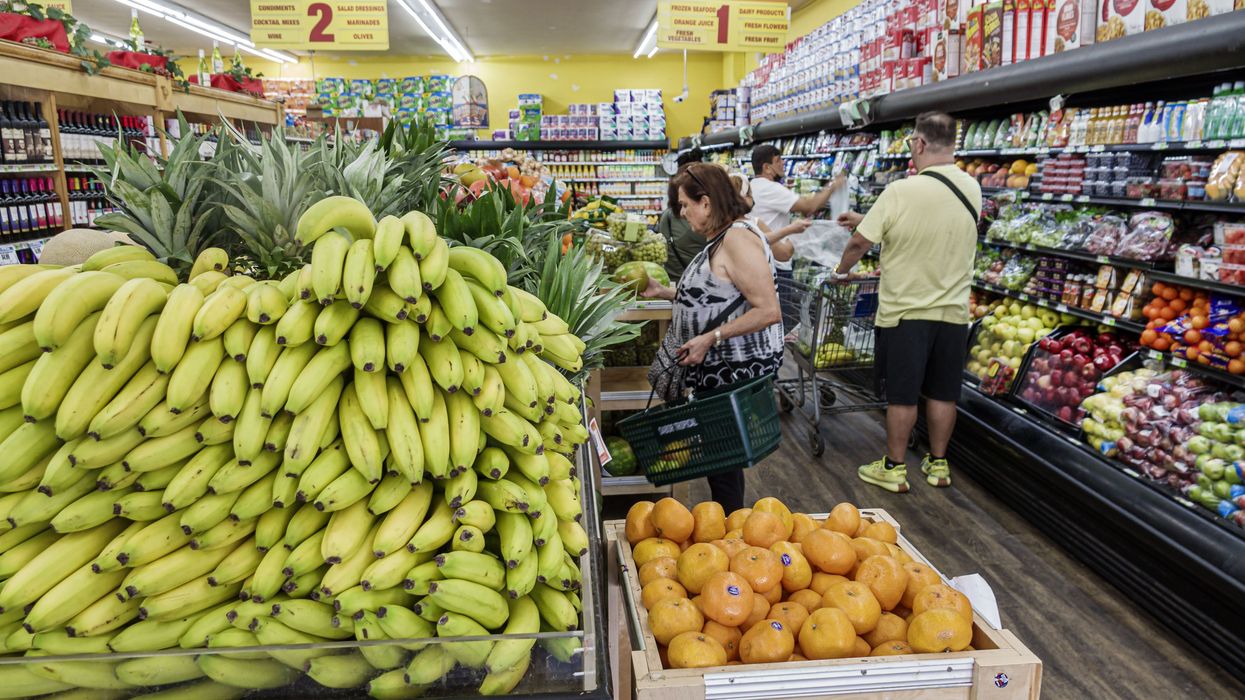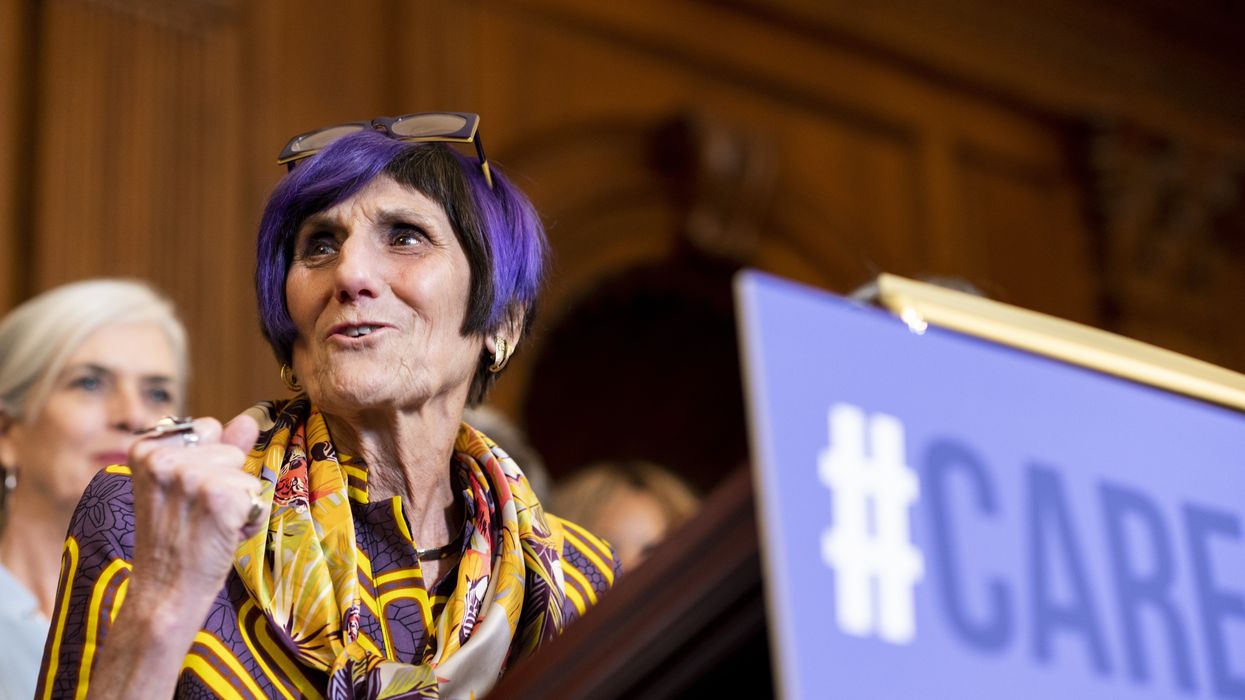With US 'Paying the Price for Trump's Mistakes,' He Ends Tariffs for Bananas, Beef, Coffee, and More
The administration is "now acknowledging what economists and business leaders have told us from the beginning: that tariffs are driving up prices," said one journalist.
Although President Donald Trump didn't actually confess that his global trade war is driving up the cost of groceries for Americans, he did finally drop his dubiously named "reciprocal" tariffs on key imports on Friday.
According to a White House fact sheet, Trump's new executive order ends his tariffs on beef; cocoa and spices; coffee and tea; bananas, oranges, and tomatoes; other tropical fruits and fruit juices; and fertilizers.
The New York Times had reported Thursday that "the Trump administration is preparing broad exemptions to certain tariffs in an effort to ease elevated food prices that have provoked anxiety for American consumers."
The reporting drew critiques of the administration's economic policies, including from members of Congress such as Senate Finance Committee Ranking Member Ron Wyden (D-Ore.), who said that "Trump just admitted it: Americans are footing the bill for his disastrous tariffs."
"While this move may alleviate some of the cost increases Trump caused, it will not stop the larger problems of rising inflation, business uncertainty, and economic damage done by Trump's crazy tariff scheme."
Also responding to the Times reporting, Sen. Elizabeth Warren (D-Mass.) wrote on social media Friday: "After months of increasing grocery prices, Donald Trump is finally admitting he was wrong. Americans are literally paying the price for Trump's mistakes."
More lawmakers and other critics piled on after Trump issued the order. CNN's Jim Sciutto said: "Trump administration now acknowledging what economists and business leaders have told us from the beginning: that tariffs are driving up prices."
MeidasTouch and its editor in chief, Ron Filipkowski, also called out the president on social media, with the outlet sarcastically noting, "But Trump said his tariffs don't raise prices."
OR, Trump Admits His Tariffs Caused Grocery Prices to Rise.
[image or embed]
— Ron Filipkowski (@ronfilipkowski.bsky.social) November 14, 2025 at 5:52 PM
Congressman Don Beyer (D-Va), who serves on the House Ways and Means Subcommittee on Trade, said in a Friday statement that "President Trump is finally admitting what we always knew: His tariffs are raising prices for the American people."
"After getting drubbed in recent elections because of voters' fury that Trump has broken his promises to fix inflation, the White House is trying to cast this tariff retreat as a 'pivot to affordability,'" Beyer said, referencing Democrats who won key races last week, from more moderate Mikie Sherrill and Abigail Spanberger, the incoming governors of New Jersey and Virginia, to democratic socialist Mayors-elect Zohran Mamdani of New York City and Katie Wilson of Seattle.
In addition to those electoral victories for Democrats, last week featured a debate over Trump's trade war at the US Supreme Court. According to Beyer: "The simple truth is that Republicans want credit for something they think the Supreme Court will force them to do anyway, after oral arguments before the court on Trump's illegal abuses of trade authorities went badly for the administration. Trump is still keeping the vast majority of his tariffs in place, and his administration is also planning new tariffs in anticipation of a Supreme Court loss."
"The same logic—that Trump's tariffs are driving up prices on coffee, fruit, and other comestibles—is equally true for the thousands of other goods on which his tariffs remain," he continued. "While this move may alleviate some of the cost increases Trump caused, it will not stop the larger problems of rising inflation, business uncertainty, and economic damage done by Trump's crazy tariff scheme."
"Only Congress can do that, by reclaiming its legal responsibility under the Constitution to regulate trade, and permanently ending Trump's trade war chaos," he stressed. "All but a handful of Republicans in Congress are still refusing to stand up to Trump, stop his tariffs, and lower costs for the American people, and unless they find a backbone, our economy will continue to suffer."
Huh. Trump dropped the tariffs on coffee, beef, and tropical fruit to LOWER PRICES. I thought other countries paid for those?
— Angry (@angrystaffer.bsky.social) November 14, 2025 at 5:50 PM
As the Associated Press noted Friday, "The president signed the executive order after announcing that the U.S. had reached framework agreements with Ecuador, Guatemala, El Salvador, and Argentina designed to ease import levies on agricultural products produced in those countries."
Trump's order also came just a day after Democrats on the congressional Joint Economic Committee released a report showing that US families are paying roughly $700 more each month for basic items since Trump returned to office in January—with households in some states, such as Alaska and California, facing an average of over $1,000 monthly.
The president has floated sending Americans a $2,000 check, purportedly funded by revenue collected from his tariffs, but as Common Dreams reported Wednesday, economist Dean Baker of the Center for Economic and Policy Research crunched the numbers and found that the proposed "dividend" doesn't add up.


